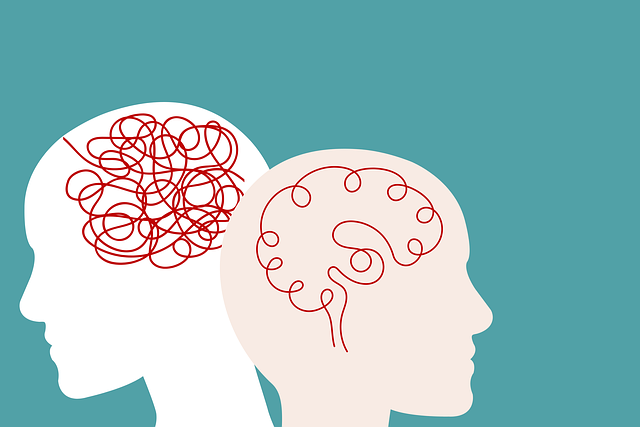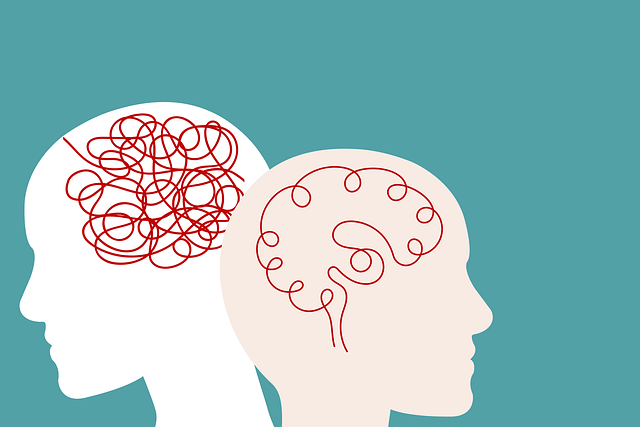Englewood Eating Disorders Therapy employs evidence-based emotion regulation techniques, including CBT, mindfulness, and DBT, to treat eating disorders holistically. By addressing emotional awareness and providing coping strategies, therapy prevents relapse and promotes lasting well-being. Their tailored individual and group sessions, cultural sensitivity, and educational resources like the Mental Wellness Podcast Series offer comprehensive support for mental health recovery and resilience.
Emotion regulation techniques are essential tools in managing eating disorders, offering a path to healing and improved mental health. This comprehensive guide explores effective strategies, from Cognitive Behavioral Therapy (CBT) approaches to mindfulness practices, providing insights into how therapy facilitates emotional balance. Discover long-term resilience building for sustainable emotion regulation, tailored specifically for those navigating Englewood Eating Disorders Therapy.
- Understanding Emotion Regulation and Its Impact on Eating Disorders
- The Role of Therapy in Teaching Effective Emotion Regulation Techniques
- Cognitive Behavioral Therapy (CBT) Approaches for Emotion Management
- Mindfulness and Meditation Practices to Foster Emotional Balance
- Building Resilience: Long-Term Strategies for Sustaining Healthy Emotion Regulation
Understanding Emotion Regulation and Its Impact on Eating Disorders

Emotion regulation techniques play a pivotal role in understanding and managing eating disorders, such as those treated at Englewood Eating Disorders Therapy. Individuals with eating disorders often struggle with dysregulated emotions, leading to unhealthy coping mechanisms that manifest as dietary restrictions or excessive eating. By teaching effective emotion regulation strategies, therapy can empower individuals to navigate their emotional landscape without resorting to disordered behaviors.
This process involves enhancing emotional awareness and developing skills for managing intense feelings. Techniques like mindfulness, cognitive restructuring, and Dialectical Behavior Therapy (DBT) are instrumental in promoting emotional well-being. These methods not only aid in depression prevention but also foster a sense of control over one’s life, which is crucial for breaking the cycle of eating disorders. Moreover, community outreach program implementation can extend these therapeutic benefits to a wider population, creating supportive environments that encourage healthy emotion regulation and overall mental health.
The Role of Therapy in Teaching Effective Emotion Regulation Techniques

Englewood Eating Disorders Therapy offers a specialized environment for individuals to learn and practice emotion regulation techniques. Through individual or group therapy sessions, clients are guided by experienced professionals who tailor strategies to their unique needs. This personalized approach ensures that evidence-based practices, such as cognitive behavioral therapy (CBT) and mindfulness training, are effectively integrated into the client’s life.
Cultural sensitivity in mental healthcare practice plays a pivotal role in teaching emotion regulation. Therapists at Englewood Eating Disorders Therapy are trained to understand and respect diverse cultural backgrounds, beliefs, and values. This cultural competency enables them to create inclusive spaces where clients feel heard, validated, and supported. Complementing these efforts, the Mental Wellness Podcast Series Production provides accessible resources for continuing education and skill development outside of therapy sessions. Additionally, Social Skills Training is offered to enhance communication and interpersonal relationships, crucial components in mastering emotion regulation techniques.
Cognitive Behavioral Therapy (CBT) Approaches for Emotion Management

Cognitive Behavioral Therapy (CBT) offers powerful approaches for emotion management, making it a popular technique in Englewood Eating Disorders Therapy. This therapeutic method focuses on identifying and changing negative thought patterns that contribute to intense emotions. By challenging distorted cognitions, individuals learn to view situations more realistically, leading to improved emotional regulation. CBT teaches practical skills such as mindfulness and cognitive restructuring, enabling clients to manage their responses to stressful or triggering events.
In the context of mental wellness, CBT goes beyond therapy sessions by empowering individuals with tools for everyday use. The Mental Wellness Podcast Series Production often incorporates CBT principles to enhance resilience building and conflict resolution techniques. Through structured exercises and guided discussions, this approach helps individuals develop a healthier relationship with their emotions, fostering better overall mental wellness.
Mindfulness and Meditation Practices to Foster Emotional Balance

Mindfulness and meditation practices play a pivotal role in emotion regulation techniques teaching. By fostering emotional balance, these practices help individuals develop inner strength (Inner Strength Development) to navigate their feelings more effectively. Through regular mindfulness exercises, people learn to observe thoughts and emotions without judgment, enabling them to respond rather than react impulsively. Meditation acts as a bridge between the mind and body, promoting self-awareness and empathy building strategies that are crucial for understanding and managing complex emotional states.
Englewood Eating Disorders Therapy integrates these techniques into its comprehensive approach, recognizing the interconnectedness of mental health and emotional regulation. The calmness cultivated through mindfulness and meditation facilitates better communication strategies, allowing individuals to express their feelings constructively. This holistic process not only aids in overcoming eating disorders but also equips individuals with lifelong tools to maintain emotional resilience and overall well-being.
Building Resilience: Long-Term Strategies for Sustaining Healthy Emotion Regulation

Emotion regulation techniques teaching offers a powerful tool for building resilience, which is key to sustaining mental health over time. Long-term strategies go beyond immediate coping mechanisms by fostering adaptability and self-awareness. At Englewood Eating Disorders Therapy, we understand that healthy emotion regulation isn’t just about managing moments of distress; it’s about developing a robust framework for navigating life’s challenges. This involves integrating evidence-based practices into daily routines, cultivating mindfulness, and refining communication strategies – essential components highlighted in both Mental Health Policy Analysis and Advocacy and Healthcare Provider Cultural Competency Training. By empowering individuals with these skills, we empower them to navigate stress, anxiety, and other emotional hurdles with greater ease, promoting lasting well-being.
Emotion regulation techniques are essential tools in the fight against eating disorders, as evidenced by the comprehensive discussion in this article. By understanding the impact of emotions on disordered eating, individuals can empower themselves through therapy and evidence-based approaches like CBT. Integrating mindfulness practices and building resilience provides a holistic strategy for long-term emotional well-being. For those seeking support, Englewood Eating Disorders Therapy offers specialized treatments to navigate this journey, ultimately fostering healthier relationships with emotions and food.














